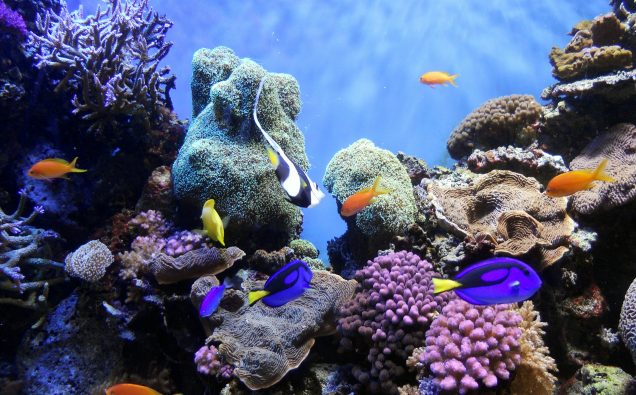
The world may find it almost imperceptible that half of the coral has died in the last three decades but for a lot of ocean creatures that depend on this key source of life, the loss is incalculable.
Environmental pollution and warming water – attributed to an unprecedented scale of human activity – have wiped off 50% of the planet’s coral in just 30 years. Recent studies have warned some unimaginable scenarios if the reasons for this degradation are not arrested soon.
In order to raise the alarm sounds of the global crisis – which deprives humanity of billions of dollars – the United Nations has named 2018 as the International Year of the Reef.
“We are engaged in a battle for the future of these reefs. We approved the nomination of large parts of the Great Sea Reef as a Ramsar site to protect it for future generations,” Prime Minister of Fiji Frank Bainimarama said.
“Today I appeal to every single person on earth to help us. We must replace the present culture of abuse with a culture of care.” Bainimarama said.
He spoke while announcing the nomination of large portions of Fiji’s Great Sea Reef as a Ramsar site in an effort to protect it from threats, such as climate change, chemical and waste water run-off from neighboring urban settlement, and industry.
A Ramsar site is designated under international treaty as a wetland important for the conservation of global biological diversity and for sustaining human life. Under the convention, wetlands are broadly defined and include areas such as coral reefs, the UN Environment says.
“This is a make or break year for the world’s coral reefs,” said Erik Solheim, Head of UN Environment. “We have a short window when we can act, and the United Nations, WWF, and countries like Fiji are calling on the world to take the steps that will fix the problem this year.”
“A healthy planet depends on healthy oceans which cannot exist without preserving coral reefs- a key pillar of WWF’s conservation work worldwide,” Marco Lambertini, Director-General of WWF International said. “While the world’s oceans are under pressure across the board, coral reefs stand out as needing a global response urgently. Holding a quarter of the ocean’s biodiversity and underpinning the lives and livelihoods of millions of people, the stakes could not be higher for corals – and humanity.”
“Coral reefs shape our islands and are affected by our development decisions, land and sea practices, along with our environmental management measures,” said Kosi Latu, Director General of the Secretariat of the Pacific Regional Environment Programme (SPREP), according to a news release.
“For better management and protection of coral reefs everyone needs to work together to respond to climate change, manage waste, conserve and restore biodiversity and support strong governance, and SPREP has established a two-year campaign, the Pacific Year of the Reef, to enable us to address these critical issues.”
But the question is if that will happen soon enough. Will the world come together at a time when the United States has turned its back on the Climate Change agreement, and there is no holding back countries offloading plastic into oceans?














